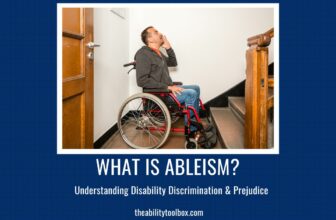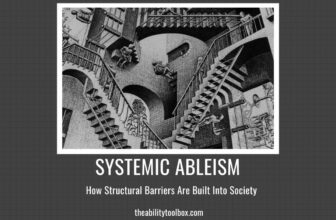
Chronic illnesses aren’t fun. To be sick and know that you will not get better is a hard pill to swallow — sometimes literally. But you cope; it’s kind of your only choice. You find a team of doctors, create a treatment plan, make lifestyle changes, and do the best you can with the hand you’ve been dealt.
But what if you can’t figure out why you’re sick? What if the best minds that science has to offer can’t identify why your body isn’t working as it used to, and they don’t know how to help you? What if there isn’t a known treatment plan? How do you move forward with making the best out of things and enjoy life when you’re living with the unknown?
As someone with an undiagnosed chronic illness, that’s what I’ve been trying to figure out for the past four years.
Developing an Undiagnosed Chronic Illness: The Unknown
In the fall of 2019, I was a five-mile-a-day runner, working three jobs, 12 hours a day, six days a week, to put two sons through college and pay my Manhattan rent—phew!
One day, I noticed I was short of breath walking. I thought I was just working too hard and needed some sleep. But even when I slept, I was still tired, really tired. I had a racing pulse for no reason, got dizzy when I talked, and even passed out in class more than once! Not the best look for a kindergarten teacher.
By November, I was hospitalized for a week and not even allowed to get up to go to the bathroom because my pulse oxygen was in the 70s. It was a scary week, a really scary week. I was told I probably only had two to three years to live and to get my affairs in order — I was 41 years old.
But then something strange happened. The structural problems they were sure were there weren’t. The test results weren’t matching what my body was showing. Nothing made sense. All the doctors agreed there was a problem — they just couldn’t figure out what was causing it.
So on to a new set of doctors. And another. And then another.
So far, I have been labeled with POTS (wrong), heart failure (wrong, thank goodness), pulmonary arterial hypertension (kind of right, unfortunately), and now the beginning stages of vascular dementia (right, and I am 45 years old).
And now here I am. We landed on a diagnosis of an “unknown vascular disorder,” which causes stenoses throughout my body and recurring TIAs (mini-strokes). I cannot teach, sometimes I have trouble talking, and I have to lie down every hour or so. It’s been rough, to say the least.
Living without a Treatment Plan When You're Undiagnosed
One of the scariest parts of having an undiagnosed chronic illness is not knowing what will happen next. Living without a treatment plan means you don’t know if you are ever doing the right thing for yourself. You feel like there has to be a better way, but you don’t know how to find it. The only thing you can do is listen to your body.
Even though your body can’t tell you what the problem is and how to fix yourself long-term, it can tell you what you need at the moment. If you feel like you need to lie down, do it. I can’t tell you how many public places I’ve had to “get flat” in. If you need a nap, take it. None of this is conducive to being a productive member of society, but you’re going to need to let that go, too.
You are not who you were before; accept it. You can’t expect the same from yourself as you did before. But you are still here, and you need to figure out how to get through the day, day by day.
If at First You Don’t Succeed, Try Again — with Doctors
When you are dealing with an unknown illness, it isn’t easy to find a group of doctors that want to work with and keep working with you.
Doctors usually see you as a challenge at first — they are going to be the ones to figure you out! You get the eager types that, even though others have tried and failed, have the brains to conquer this medical mystery and get you on the road to recovery.
If only there were more actual Dr. Houses in this world!
What tends to happen is they’ll evaluate you, run their tests, run more tests, and slowly lose interest when nothing pans out. It happens. Move on. Find new doctors.
Your ideal medical team will keep working with you even when they can’t figure it out. They’ll treat what they can. For example, I’m on aspirin and cholesterol meds to try and keep blood flowing through my tricky veins. My doctors don’t know why my vascular system doesn’t follow the rules, but they are managing the damage. It’s not the best, but it’s something.
If you have an undiagnosed chronic illness, keep trying to find the right team, but if you need to take a doctor break, do it. It’s disheartening to be disappointed over and over again by professionals that should know how to figure these kinds of things out — that’s why they’re doctors, after all! Sometimes a month or two off from appointments is needed to recharge and get ready to fight the fight again.
Living without a Label
No one wants to be labeled — unless you're chronically ill. Having a label gets you in the door; it’s how you get the help you need. A label also makes it much easier to explain your situation to your friends, family, and, most importantly, your employer.
Work can be tricky when dealing with a chronic illness, sometimes impossible. Having an undiagnosed condition adds to the burden, but there are options, including remote work or filing for disability.
Being approved for disability is complicated without a label, but it isn’t impossible. You can expect to be denied on your first try, but appealing is an option and is needed when you have an intricate medical situation. Keep records of all of your tests, doctor visits, and prognoses. Having doctors that care helps, too. Doctors’ testimonies are taken into account during the appeals process, and as long as they agree that you aren’t able to work because of your condition, that’s all that matters, label or not.
Please remember one important thing: just because there isn’t a label doesn't mean it's not real.
Living — In General — with an Undiagnosed Chronic Illness
The most important part of living with an unknown chronic illness is living. Even with lifestyle changes and a making-the-best-of-it attitude, it can be hard to keep going. Besides the physical changes, the mental and emotional tolls can be high. Be patient with yourself and find a support system.
When I was on my second team of doctors, I had an extremely experienced, well-known electrophysiologist. After one of my many tests, he looked at my chart, looked back up at me, and said with a sigh, “You’re going to need a support group.”
I didn’t get it then. I get it now.
Even though I didn’t join a support group, I did cultivate a support team, including my partner, friends, family, and pup. They help. On the hardest of days, they help.
Most importantly, be patient with yourself. You will have hard days; allow yourself the time and space you need. You can go down as long as you eventually get back up.
Life is different when you have a chronic illness, labeled or unlabeled. But it’s still life, and as long as you’re still in it, you owe it to yourself to live.
Do you live with an undiagnosed chronic illness?
Share your experience with our community in the comments.
Image by Nordenworks via Deposit Photos







